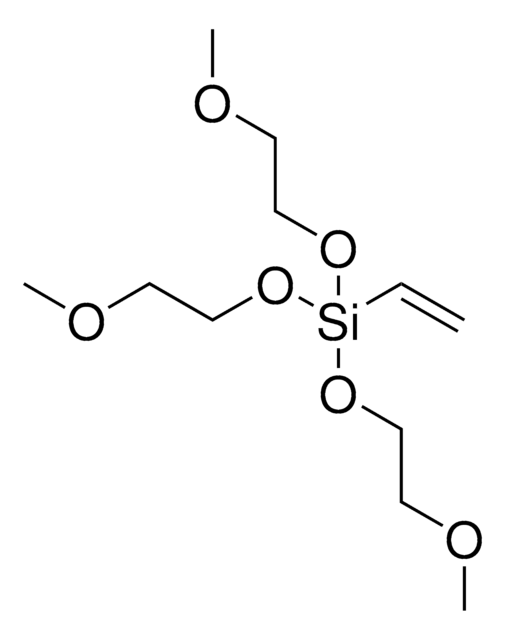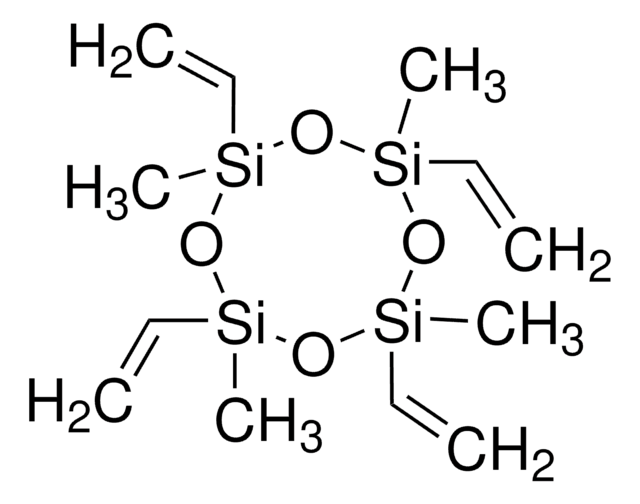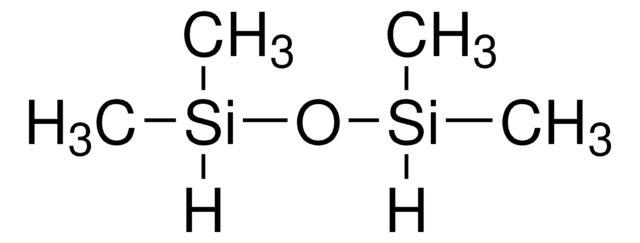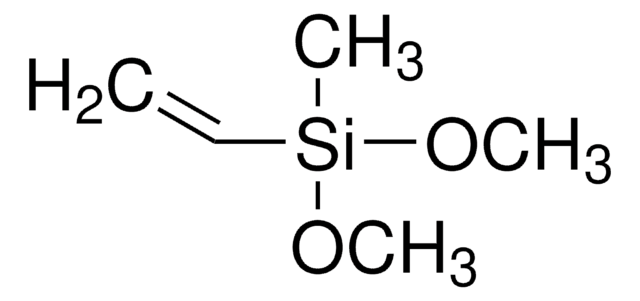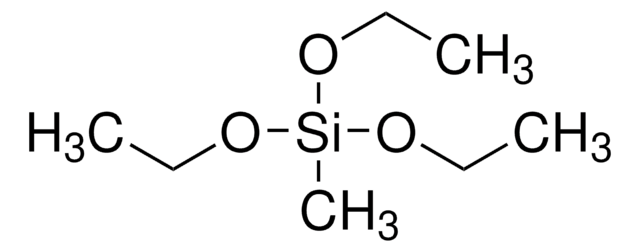175560
Triethoxyvinylsilane
97%
Synonym(s):
(Triethoxysilyl)ethylene, Vinyltriethoxysilane
About This Item
Recommended Products
Assay
97%
form
liquid
refractive index
n20/D 1.398 (lit.)
bp
160-161 °C (lit.)
62-63 °C/20 mmHg (lit.)
density
0.903 g/mL at 25 °C (lit.)
SMILES string
CCO[Si](OCC)(OCC)C=C
InChI
1S/C8H18O3Si/c1-5-9-12(8-4,10-6-2)11-7-3/h8H,4-7H2,1-3H3
InChI key
FWDBOZPQNFPOLF-UHFFFAOYSA-N
Looking for similar products? Visit Product Comparison Guide
General description
Application
Signal Word
Warning
Hazard Statements
Precautionary Statements
Hazard Classifications
Eye Irrit. 2 - Flam. Liq. 3 - STOT SE 3
Target Organs
Respiratory system
Storage Class Code
3 - Flammable liquids
WGK
WGK 1
Flash Point(F)
93.2 °F - closed cup
Flash Point(C)
34 °C - closed cup
Personal Protective Equipment
Choose from one of the most recent versions:
Already Own This Product?
Find documentation for the products that you have recently purchased in the Document Library.
Customers Also Viewed
Articles
Over the past several years, Pd-catalyzed cross-coupling of silicon compounds has rapidly gained acceptance as a suitable alternative to more commonly known methods such as: Stille (Sn), Kumada (Mg), Suzuki (B), and Negishi (Zn) cross-couplings.
A viable alternative to the popular Stille and Suzuki coupling reactions mainly due to the formation of nontoxic byproducts and stability to many reaction conditions.
Our team of scientists has experience in all areas of research including Life Science, Material Science, Chemical Synthesis, Chromatography, Analytical and many others.
Contact Technical Service
